To define democracy as some do, it is a government where the supreme power is lodged in the people. Oligarchy is a government where the supreme power is in the hands of few.
Moreover, numerous scholars – including Rustow, Huntington, Putnam, Linz and Stepan, Dahl, Lijphart, Diamond, Tilly, Posner, and many others have pointed out that democracy emerges from prolonged and inconclusive political struggle, leads to successful institutionalization through elections and good governance and it is more likely to foster broader support for the constitution, both in political and policy terms while maintaining a balance between openness and effectiveness.
No doubt, it could be argued that it was a revolutionary process of change toward a new direction even though no one had the leeway to participate in it so as to consider it as truly collective.
The popular notion, if we paraphrase Lincoln, is that of the Nepali people, by the Nepali people and for the Nepali people. Furthermore, democracy will be real and relevant only if citizens are engaged in decision-making processes. It can be argued further that no country may fit the same model of democracy.
Rustow argued that national unity is the single background condition for democratization to begin its journey. But the question is: to what extent this principle has been realized in Nepal that requires a concrete long-term strategy built from the interaction between the government and the people? Indeed, with good governance and the rule of law, democracy paves the way for the sustained, inclusive and equitable economic growth of which the human being is the main participant and beneficiary.
There is little doubt that the individual character of each society helped determine the ultimate impact in creating new forms of socioeconomic and political control and organize new strategies of survival.
Although democratization in Nepal is often considered to be an archetypal case of a concordat transition, which basically can be characterized as talk-centric democracy or ‘votocracy’, it remains weak and ineffective. One is the sordid fact noticed by many observers, that the entire public sector has been corrupted, which observers fear, might fuel in the derailment of Nepal’s delicate transition to democracy.
Meanwhile, there is a little or no reason to believe that positions will change today or tomorrow. There is little doubt that the individual character of each society helped determine the ultimate impact in creating new forms of socioeconomic and political control and organize new strategies of survival.
Regardless of the political change, people’s role in governance that challenge mainstream conceptions of participatory democracy looks limited at the first glance due to the lack of collective identity; consociation power-sharing as the conflict management model of choice has been either sidelined or neglected. Ten years since the regime change in 2008 from the constitutional monarchy to a republic, political parties have become the architects of a new Nepali state whose nature and the outcome are variously interpreted but the impact involves contributing to the growth of strong majority-dependent democratic institutions that seek centralized structure of authority.
In South Asia, the inability of the state leaders in the sense that democracy becomes a long-range projection by organizing the population in large areas of their countries has been striking.
For example, we may argue that the end of monarchy was not a sudden change with some normal base of support; it was rather due to a wide range of political activities. Similarly, although the concept of federalism and secularism is so broad that it may encompass many dimensions, the House of Representatives declared Nepal as a secular federal republic on May 18, 2006, thus putting an end to two and a half-century-old Hindu monarchy.
No doubt, it could be argued that it was a revolutionary process of change toward a new direction even though no one had the leeway to participate in it so as to consider it as truly collective. Of course, it is one thing to say that it did not bring with it a necessary blueprint for new strategies and that may not be a misinterpretation.
Such a change provides an opportunity to understand the utility and validity of formal institutions defined through democratic rules and norms that particularly have led to speculation about some kind of participatory culture taking roots, which may lead to ensuring further representative functions.
While observing the pace of events over the past three decades, it is hard to avoid the feeling that something fundamentally different has happened in world history. Instead of putting an end to history, the world seems to have entered a dramatic new age of complex, unpredictable changes. In South Asia, the inability of the state leaders in the sense that democracy becomes a long-range projection by organizing the population in large areas of their countries has been striking. Yet, democratic states must have some sort of common identity to push a bit further the logic of people’s sovereignty which is widely believed as the maxim of democratic consolidation.
From an analytic perspective, however, Asia’s rise to ‘global prominence, writes Parag Khanna (2019), in which groups and individuals possess overwhelming capabilities to exploit the new opportunities, the question is who could take advantage of the new circumstances on the rate, direction, or content of change is beyond the scope of this presentation, but when we look back from 1950 at the date on which Nepal accomplished multiparty democracy under the aegis of a constitutional monarch, but the ineffectiveness of Nepali leaders who have faced impenetrable barriers to determine the rules of the game should be, in large part, what leads people to become involved in a new form of political participation.
There is no doubt in our mind that India has the longest running democracy in South Asia. However, a variety of militant insurgency movements in the region posing severe strains on governance and create a great sense of expectation about the potential capacities of the states creating democratic governance in practice meaning that where people believe only democratic rule as a good way of governing and again their goals of effecting deep social change in their societies.
Moreover, the fundamental question whether democracy is effective to plan and carry out programs of institutional reform to alleviate rural poverty, to give new insights into the processes of social and political change or ensure individual freedom in a situational context. It is not surprising, then, that full-blown democracy where the society shapes state still to appear in the South Asian region.
The current Nepali polity seems to head toward multi-level governance but a systematic discussion of the principal aspects of federalism indicates that the steering role of political institutions and responsibilities in meeting internal and external challenges to the state remains blurred.
At the same time, the evidence we have so far would suggest that the seeds of new political patterns had started to emerge soon when the old routines had died down, and it may be regarded important and intrinsically valuable in the process for successful institutional designs that such process can also serve to articulate general interests of the community.
One may also notice an Achilles heel in establishing a society that is more and more democratic and dynamic to enhance public participation in the political process, to have a well-governed state and deliberative politics free from discrimination based on race, ethnicity, class, and gender and also have opportunities to make the country more vibrant, to impel the government to govern less and serve more, to develop equal rights for all citizens, and encourage mechanisms of accountability and participation for modernism, progress, and prosperity everywhere. This is perhaps due to the deep-seated authoritarianism and socially rooted repression in the upper echelons of society.
But practical experience indicates that most of the new democracies are fragile institutionally because corrupt actors of political parties remain interested only in their own economic well-being and remain skeptical about changes; the parties remain dependent heavily on a few notable personalities or on a coherent policy or some shared identity.
So, there is a problem in both political and social arenas that effectively secure the political institutions with liberal rights, rule of law, equality before the law, self-ownership, and legitimacy. More specifically, most of the political upheavals in Nepal, until the promulgation of 2015 constitution, have had little to do toward development which had begun anew and it worked precisely in the form of a commitment to a certain way of being and relating in the future or being predictable and did make the country worthy of clean functioning for deep-rooted and mass-based democratic polity that may ensure active participation and widespread collective action to empower the people. The underlying message here is that we must make necessary changes to have a healthy society that generates opportunity and hope.
Nepal is in a situation where as a society making process, not everybody is reaping the benefits of democracy. We remain optimistic that Nepali democracy will survive, no matter in what condition, but Nepal is one of the world’s vulnerable nations, where country’s politics has left out the people and it is still to know whom we want to run our own show. The problem lies with lack of statesmanship on the part of the leaders which has led to conflicts of all dimensions. This is, in fact, unfortunate.
Views expressed in this article are the author’s own and do not necessarily reflect the stance of Khabarhub.


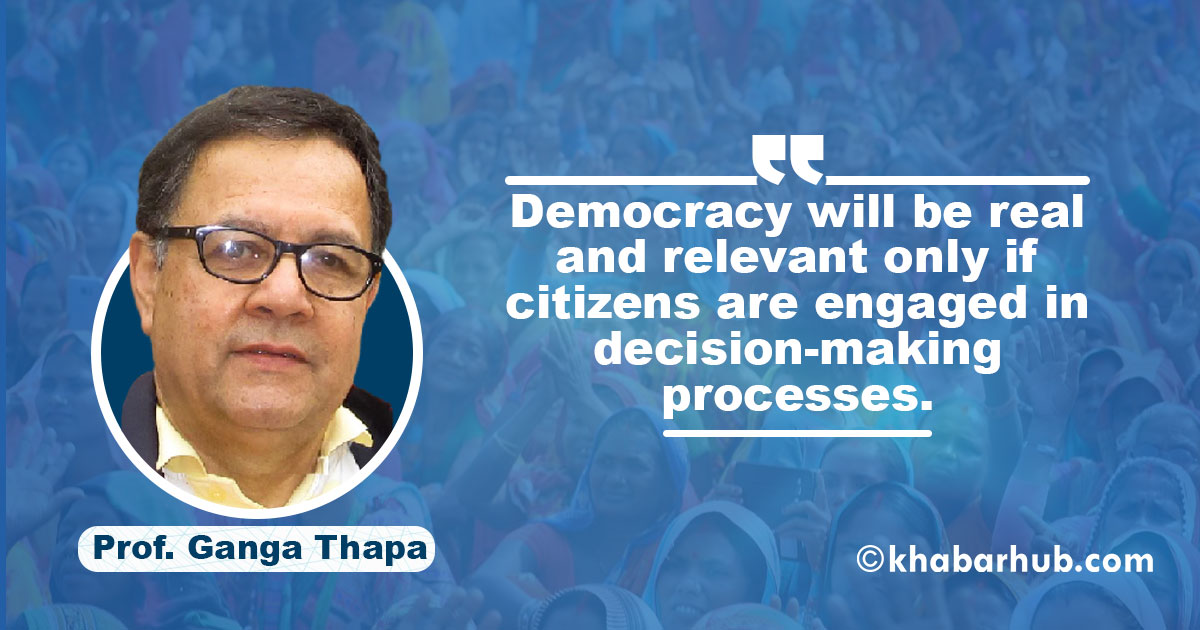

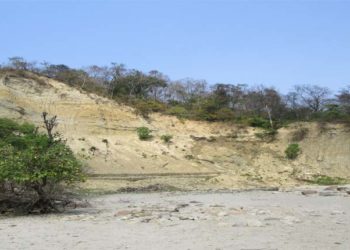
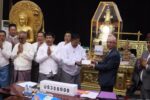
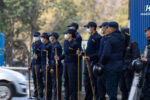
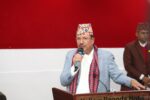

Comment